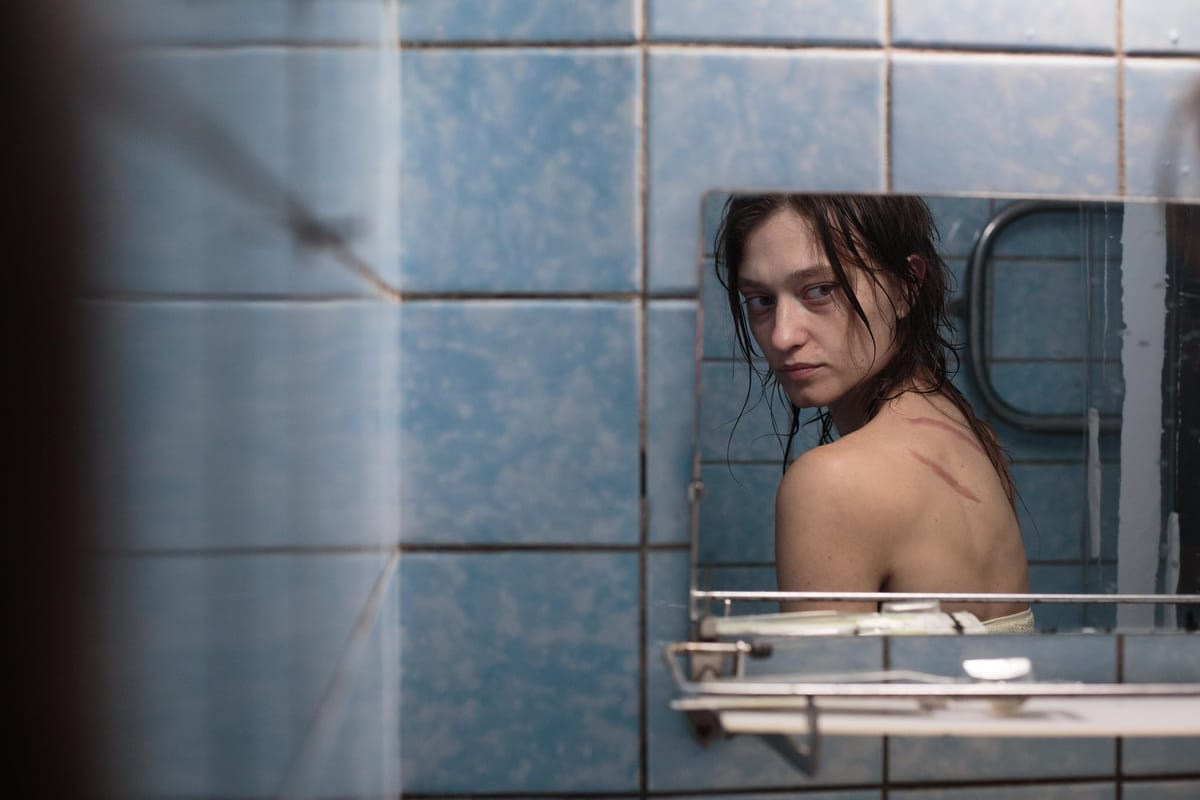Butterfly Vision
A less common type of war film

Butterfly Vision tells the story of Lilia (Marharyta Burkovska), an aerial reconnaissance expert on the front lines of the War in Donbas, part of the Russo-Ukrainian War which began nearly a decade ago. It opens with her returning to Ukraine after spending two months as a prisoner of the separatists, and trying to settle back into something resembling life. Of course, her time in the field has left its scars, and her time in captivity even more. As such, her behavior becomes hard for others to understand as she reasserts control of herself and her situation in one of the few ways she can: refusing to abort her rapists’ baby.
Lilia is not the traditional picture of grief or anguish or trauma. While we never for a moment are deluded into thinking she came away unaffected, she is an expert at hiding her internal life. She seems neither upset nor despondent nor depressed nor angry. She wears a smile, insists nothing is wrong, and just appears tired. If anything, it feels like her family and friends and strangers who know her tale are projecting onto her, which she finds somewhat annoying and more overwhelming than any of her experiences in the war.
Yet occasionally, her mask will slip, and we’ll get a peak at the raw emotions boiling underneath. Not from outbursts or anything dramatic, but from smaller reactions or decisions that catch us off guard. For example, her strong recoil from her husband when he tries to welcome her home with a hug. Or how starkly we feel her extreme discomfort when she’s given a pelvic exam, despite the fact that we only see her feet sticking out from behind a divider.
All of this gives us the sense of a person who is intent on keeping control. We don’t know how much of that is her preexisting personality vs. a reaction to her experiences during wartime, of course, but it’s her dominant character trait now. And so when she finds out she’s pregnant, and the abortion procedure triggers her trauma so badly she leaves the room, it is not all that surprising when she decides not to terminate. Shocking, yes. After all, we’ve done the math, and so know this is the product of a war crime. And yet, as it’s something within her, something no one can touch, it’s clearly a symbol of her ability to choose for herself. Even as things with her family and her husband are strained, she can always focus on the pregnancy.
This need for control pervades the film. Apart from Lilia, we see it in her husband, Tokha (Liubomyr Valivots). He’s joined a local “neighborhood watch” group, made up of a bunch of veterans, who go out on patrols to “keep the peace”. Those quotes aren’t used arbitrarily: they indicate how such activities play out. The nature of the National Patrol is quite clear from the moment he mentions them, with the way he talks about “training” and his head-to-toe black uniform. Such that when they become more relevant later in the film, it’s not very surprising, even as it’s upsetting. But the point is that having returned to civilian life after being embroiled in the chaos of war has left him seemingly unmoored, with a desire to recreate that comradery and regimented living back home. Which is the contrast: Lilia wants only to control herself, whereas Tokha wants to control the world around him.
The movie wants us to understand what it feels like to watch someone wrestle with the return home. We see Lilia dreaming of what it would be like if the city was a war zone, experience some establishing shots from the perspective of a drone, and be most at ease when with fellow soldiers, even when they’re not people she knows personally. While everyone is happy to have her home, it no longer feels like she belongs, and the movie does a great job communicating that through her interactions with it. It’s made even more stark and upsetting when actions taken to help her are shown to remind her of being imprisoned by the separatists.
It is a raw, unflinching, and real look at the human consequence of war, and how survival doesn’t automatically translate to escape. And it was even more timely, as its initial release was just as the people of Ukraine were facing increased hardships and danger, only a few months after Russian’s full scale invasion. And despite being tied to a particular conflict at a particular time, the experience is more universal, and so will remain relevant for years to come.